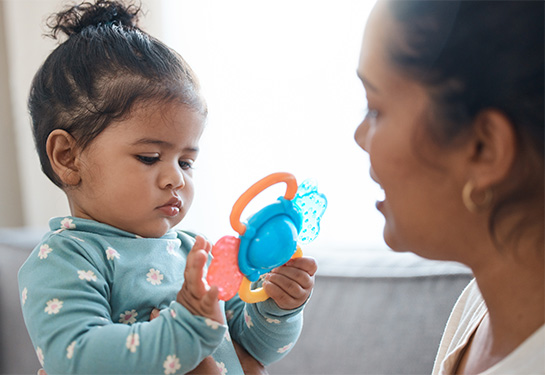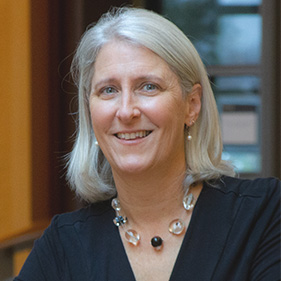Is autism more likely in children who have autistic aunts or uncles?
New MIND Institute study recruiting infants whose parents have an autistic sibling
Infants with an autistic sibling have a 20% chance of developing autism, which is about eight times higher than the rate in infants with no autistic siblings. But what about infants whose parent has a sibling with autism? Are these children also more likely to develop the condition? UC Davis MIND Institute researchers hope to begin answering that question with a new study.
Researchers are currently recruiting infants 6-18 months old with an autistic aunt or uncle. The goal of the study is to determine whether this group of children would benefit from additional support or evaluation.
“This is an exciting new project that will help us learn more about familial likelihood of autism, which could lead to earlier diagnosis and support for children who need it,” said Sally Ozonoff, professor in the Department of Psychiatry and Behavioral Sciences and the lead investigator at UC Davis Health.
The research is funded in part by the nonprofit Autism Science Foundation and is called the Next Gen Sibs Project. It is taking place at UC Davis Health and three other sites: Emory University in Atlanta, the University of California, Los Angeles and the University of Alberta in Canada.
This is an exciting new project that will help us learn more about familial likelihood of autism, which could lead to earlier diagnosis and support for children who need it.”—— Sally Ozonoff, professor, Department of Psychiatry and Behavioral Sciences
Learning from past sibling studies
Ozonoff has been doing sibling research for more than 20 years, including a seminal 2011 study on autism likelihood in siblings of autistic children.
“It’s a big advantage that we have run large-scale sibling studies in the past, because we can use that experience and knowledge in this very similar study,” Ozonoff explained. “It’s a familiar study design but with a newer population.”
Researchers will collect information about the infants’ development by observing them and talking to the parents. These evaluations will be done either in person at the MIND Institute or via telehealth and will last one to two hours. The team will assess social and communication development, as well as repetitive behaviors and the way the child plays.
Study goals
The researchers hope to get a better understanding of how autism affects families from one generation to the next. They want to learn more about early development in infants with a second-degree relative with autism.
“This is a smaller study that won’t be able to determine prevalence, but it will give us a better idea of whether more intensive monitoring and evaluation of these children is needed,” Ozonoff explained.
What’s required of study participants and how to sign up
The study is open to infants, ages 6-18 months, who have an autistic aunt or uncle.
Parents or guardians of study participants will be asked to:
- Complete online questionnaires
- Attend up to five evaluations of one to two hours, at the UC Davis MIND Institute in Sacramento or via telehealth
Parents or guardians of study participants will receive:
- Feedback from experts about their baby’s development
- $50 Amazon gift code after each visit
For more information, call 916-703-0401, email slmaqbool@ucdavis.edu or visit the study website.
The UC Davis MIND Institute in Sacramento, Calif. is a unique, interdisciplinary research, clinical, and education center committed to deepening scientific understanding of autism and other neurodevelopmental conditions. It is a highly collaborative center, bringing together families, researchers, clinicians, community leaders and volunteers with the common goal of developing more personalized, equitable, and scientifically proven systems of support and intervention. The institute has major research efforts in autism, fragile X syndrome, chromosome 22q11.2 deletion syndrome, attention-deficit/hyperactivity disorder (ADHD) and Down syndrome. More information about the institute and its Distinguished Lecturer Series, including previous presentations in this series, is available on the Web at mindinstitute.ucdavis.edu.





